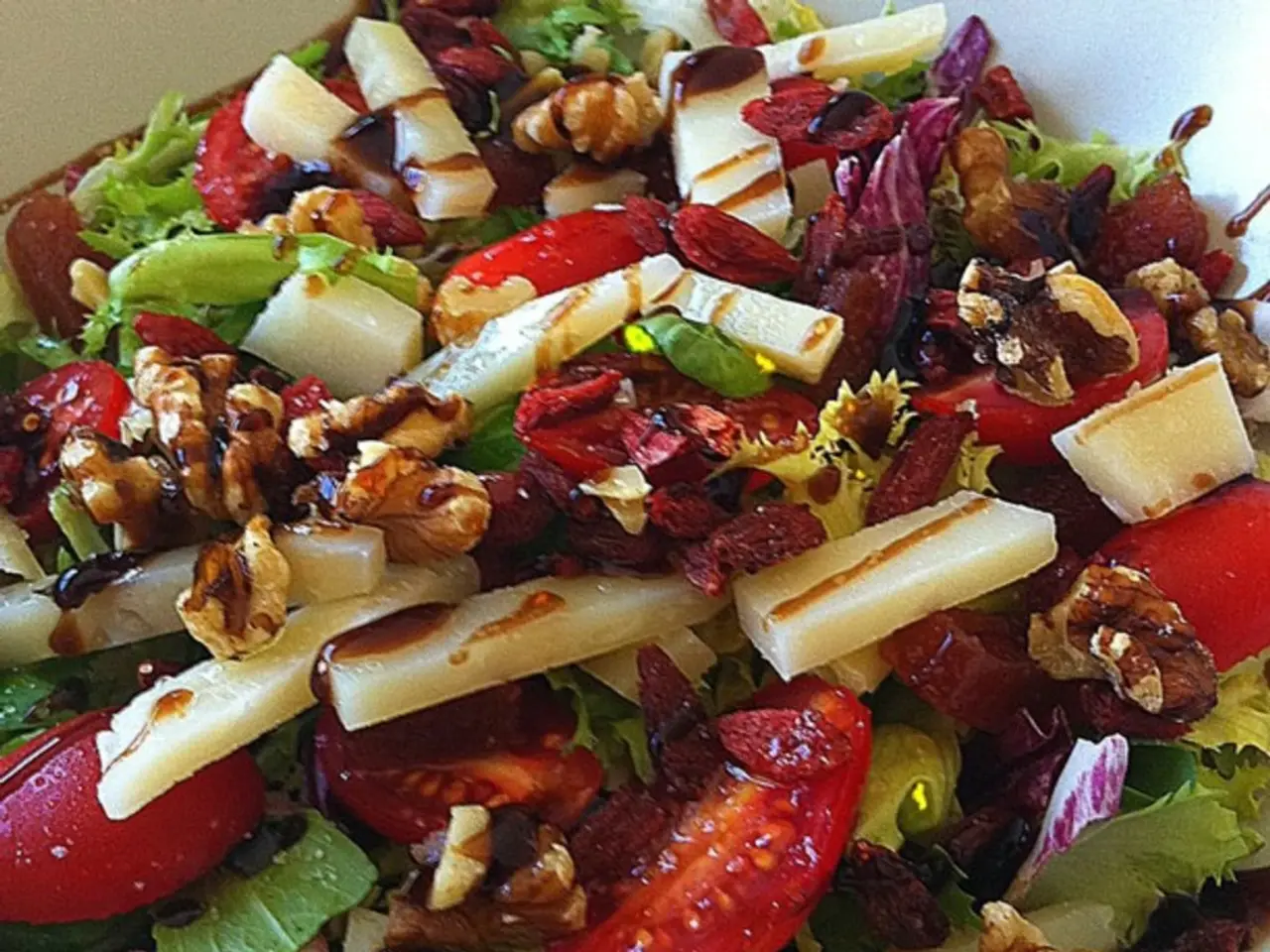The potential impact of Apple and Pear consumption on stroke risk.
A recent study has shed light on the potential benefits of consuming white-fleshed fruits and vegetables, such as apples and pears, in reducing the risk of stroke. The study, titled "Colors of Fruit and Vegetables and 10-Year Incidence of Stroke", found that a higher intake of these foods rich in quercetin, a powerful antioxidant and anti-inflammatory compound, could lower the risk of stroke by up to 9%.
Quercetin, found in a variety of fruits and vegetables, is known for its strong antioxidant and anti-inflammatory properties. It neutralizes free radicals, reducing oxidative stress, a key contributor to vascular damage and stroke risk. Preclinical studies have shown that quercetin can reduce atherosclerosis, the build-up of arterial plaque that can lead to ischemic stroke, and exert neuroprotective effects in brain ischemia models.
The study included 20,069 adults aged between 20 and 65, who self-reported their consumption of fruits and vegetables over a ten-year period. The researchers found that each increase of 25 grams per day in white fruit and vegetable consumption was associated with a 9% lower risk of stroke.
While the scientific evidence supporting the stroke prevention benefits of quercetin is promising, particularly in preclinical studies, clinical trials in humans remain limited and have shown inconsistent results. Larger, well-designed clinical trials are required to confirm whether dietary quercetin intake from white-fleshed fruits and vegetables translates into meaningful stroke prevention in humans.
Quercetin's benefits extend beyond stroke prevention. It is also known to fight inflammation, which is at the root of many diseases, including cancer, heart disease, cognitive decline, and autoimmune disorders. Other foods rich in quercetin include bananas, onions, capers, yellow peppers, fresh dill, fresh tarragon, and buckwheat.
The Centers for Disease Control reports that approximately 800,000 people in the United States experience a stroke each year, making it the fifth leading cause of death. The Editor's note mentions that 80% of strokes are preventable, but only 10% of stroke survivors recover almost completely.
In conclusion, while the evidence is promising, further clinical research is needed to firmly establish the stroke prevention benefits of consuming quercetin-rich white-fleshed fruits and vegetables. However, incorporating these foods into your diet could be a simple and delicious step towards a healthier lifestyle.
- The powerful antioxidant and anti-inflammatory compound, quercetin, found in white-fleshed fruits and vegetables, has been linked to a potential reduction in stroke risk.
- Its anti-inflammatory properties make quercetin a candidate for fighting various medical conditions like cancer, heart disease, cognitive decline, and autoimmune disorders.
- Incorporating a diet rich in quercetin-rich foods like white-fleshed fruits and vegetables, along with fitness and exercise, and maintaining good nutrition, could be a step towards promoting health-and-wellness.
- Though clinical trials have shown inconsistent results, the potential Stroke prevention benefits of quercetin are promising and warrants further scientific investigation, as highlighted by studies and medical-condition reports from the Centers for Disease Control.




